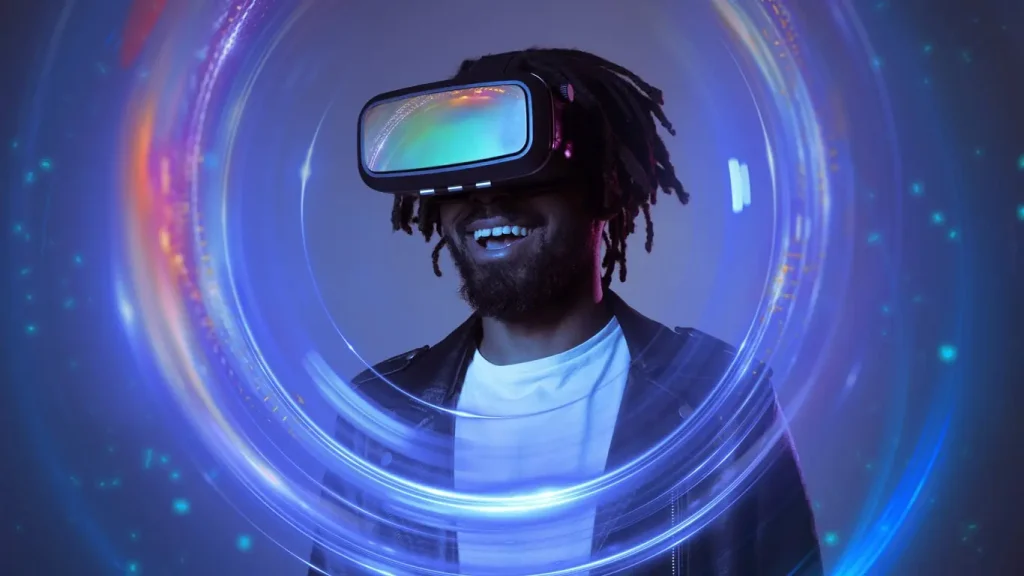Technology has profoundly transformed the entertainment industry, reshaping how content is created, distributed, and consumed. From the early days of cinema to the digital age, tech advancements have continually pushed the boundaries of what’s possible, leading to new experiences and innovations. This article explores how technology has revolutionized entertainment, highlighting key areas where it has made an impact and examining its future potential.

The Evolution of Entertainment Technology
- Film and Cinematic Innovations:
- Digital Filmmaking: The shift from film to digital has been one of the most significant changes in the movie industry. Digital cameras offer greater flexibility, lower costs, and the ability to shoot in a variety of conditions, transforming the filmmaking process. Editing software like Adobe Premiere Pro and Final Cut Pro has further revolutionized post-production, allowing for more complex and creative editing techniques.
- Special Effects and CGI: Advances in computer-generated imagery (CGI) have expanded the possibilities for visual effects in films. Movies like “Avatar” and “The Avengers” showcase the potential of CGI to create stunning visuals and realistic special effects, elevating storytelling and engaging audiences in new ways.
- Streaming Services and Content Delivery:
- Rise of Streaming Platforms: The advent of streaming platforms such as Netflix, Hulu, and Disney+ has transformed how people access and consume entertainment. These platforms offer on-demand access to a vast library of content, from movies and TV shows to original programming, changing viewing habits and reducing reliance on traditional cable TV.
- Content Personalization: Streaming services use algorithms to analyze viewing habits and preferences, offering personalized recommendations that enhance the user experience. This technology allows users to discover new content tailored to their tastes, leading to more engaging and satisfying entertainment experiences.
- Gaming Technology:
- Virtual Reality (VR) and Augmented Reality (AR): VR and AR have introduced immersive experiences in gaming. VR creates fully virtual environments where players can interact with digital worlds, while AR overlays digital elements onto the real world, enhancing gameplay with interactive features. Games like “Beat Saber” and “Pokémon GO” exemplify the potential of these technologies to create unique and engaging experiences.
- Cloud Gaming: Cloud gaming services such as Google Stadia and Xbox Cloud Gaming enable players to stream games directly from the cloud, eliminating the need for powerful hardware. This technology allows for greater accessibility and convenience, enabling gamers to play high-quality games on a variety of devices.
- Music and Audio Innovations:
- Digital Music Distribution: The transition from physical media to digital formats has revolutionized how music is distributed and consumed. Platforms like Spotify, Apple Music, and Tidal offer vast libraries of music that can be streamed or downloaded, providing easy access to a wide range of genres and artists.
- Music Production Software: Advances in music production software, such as Ableton Live and Logic Pro, have democratized music creation. Artists can now produce professional-quality music from their home studios, leading to a rise in independent and self-produced music.
- Interactive Media and Experiences:
- Interactive Storytelling: Technology has enabled new forms of interactive storytelling, where audiences can influence the direction of narratives. Interactive films and TV shows, such as Netflix’s “Black Mirror: Bandersnatch,” allow viewers to make choices that impact the story, creating a more engaging and personalized experience.
- Immersive Experiences: Technologies such as VR and AR are also used to create immersive entertainment experiences, from virtual concerts to interactive museum exhibits. These experiences offer new ways for audiences to engage with content and participate in the storytelling process.

The Impact of Technology on Entertainment
- Increased Accessibility and Convenience:
- Global Reach: Technology has made entertainment more accessible to a global audience. Streaming services, digital distribution, and online platforms allow content to reach viewers worldwide, breaking down geographical barriers and expanding market opportunities for creators.
- On-Demand Access: The shift to digital and streaming platforms has given consumers more control over when and how they access content. This on-demand model has changed viewing habits, with audiences preferring to watch content at their own pace rather than adhering to traditional broadcast schedules.
- Enhanced Creativity and Innovation:
- New Creative Possibilities: Advances in technology have opened up new creative possibilities for artists and creators. The use of CGI, VR, AR, and other technologies allows for the exploration of innovative storytelling techniques and the creation of unique and immersive experiences.
- Collaborative Tools: Technology has also facilitated collaboration among creators. Cloud-based tools and platforms enable artists, writers, and filmmakers to work together from different locations, streamlining the creative process and fostering innovation.
- Economic Impact:
- Revenue Models: The rise of digital distribution and streaming services has led to new revenue models in the entertainment industry. Subscription-based services, ad-supported platforms, and digital downloads provide multiple streams of income for creators and distributors.
- Market Expansion: Technology has expanded market opportunities for entertainment companies, allowing them to reach new audiences and explore international markets. This has led to increased competition and innovation within the industry.
Challenges and Future Directions
- Digital Rights and Piracy:
- Intellectual Property Concerns: The digital distribution of content has raised concerns about intellectual property rights and piracy. Protecting digital content from unauthorized distribution and ensuring fair compensation for creators remain ongoing challenges.
- Evolving Regulations: As technology continues to advance, regulations around digital rights and content protection will need to evolve. Balancing the interests of creators, distributors, and consumers will be crucial in addressing these challenges.
- Technology and Ethics:
- Data Privacy: Streaming services and digital platforms collect extensive data on user behavior and preferences. Ensuring that this data is handled responsibly and protecting user privacy are important ethical considerations for the industry.
- Bias and Representation: Technology can also impact representation in entertainment. Ensuring diverse and inclusive content and addressing biases in algorithms and automated recommendations are important for creating equitable and representative media.
- Future Innovations:
- Next-Generation Technologies: The future of entertainment will likely be shaped by emerging technologies such as artificial intelligence (AI), blockchain, and advanced VR/AR systems. These technologies have the potential to further transform content creation, distribution, and consumption.
- Interactive and Immersive Media: As technology continues to evolve, we can expect more interactive and immersive media experiences. Innovations in AI, machine learning, and spatial computing will drive the development of new entertainment formats and experiences.

Conclusion
Technology has revolutionized the entertainment industry, transforming how content is created, distributed, and experienced. From digital filmmaking and streaming platforms to VR gaming and interactive storytelling, technology has opened up new possibilities for creators and consumers alike. While challenges remain, the continued advancement of technology promises to drive further innovation and enhance the entertainment experience. As we look to the future, embracing these technological advancements will be key to shaping the next generation of entertainment and ensuring that it remains engaging, accessible, and inclusive for all.


